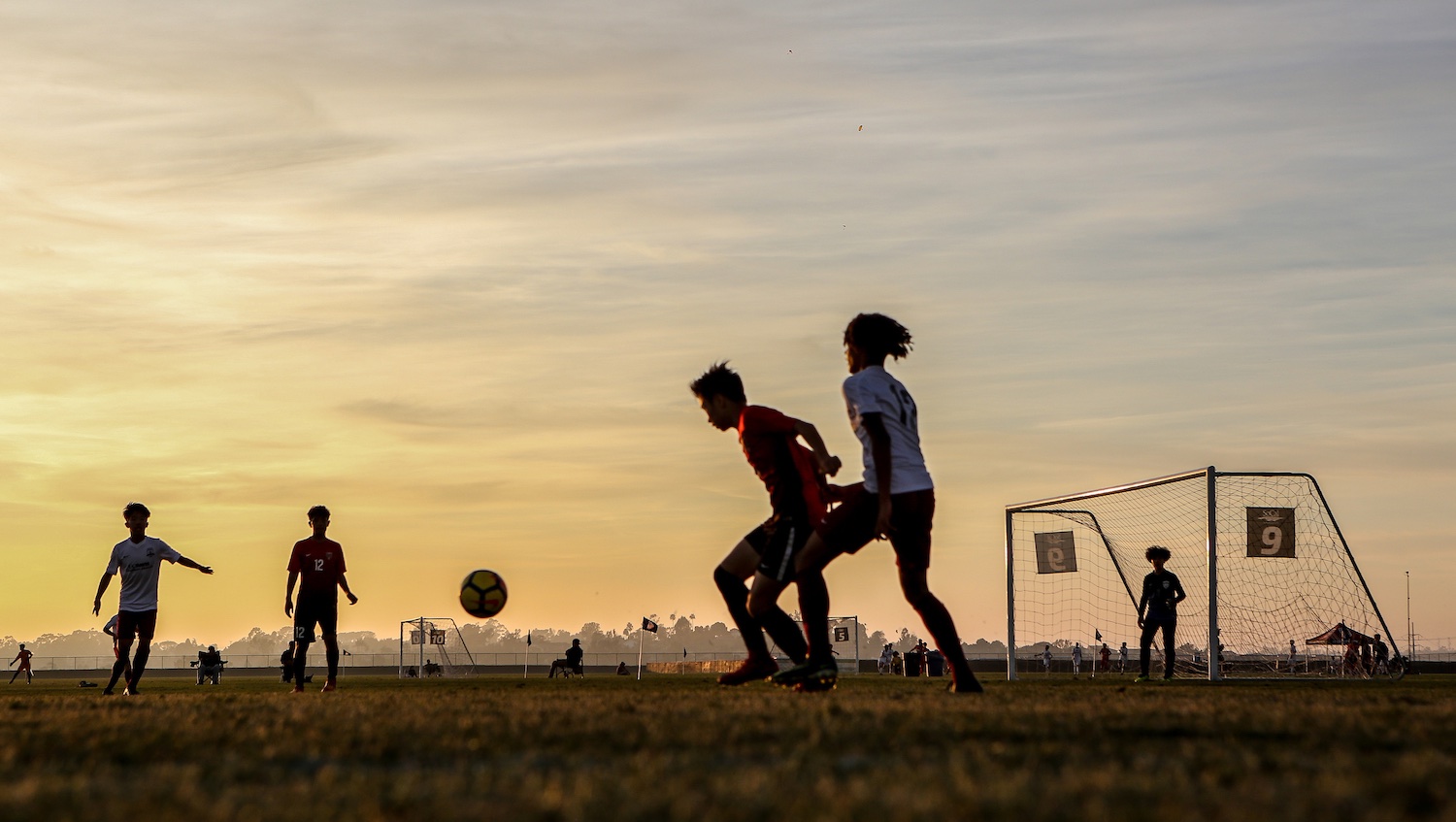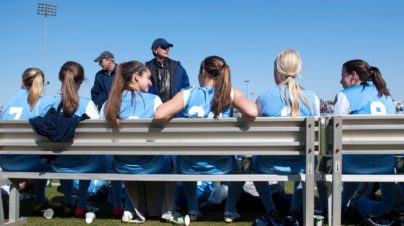Five mistakes soccer parents make with their players

By Hannah Krieger
Parents play a critical role in their child’s soccer development, but have you ever really examined whether you’re supporting your player’s development or hindering it? How can you support and encourage your child without getting in the way?
We’ve all seen the extremes: the ranting and raving parent on the sideline, the parent who has their player training seven days a week, year-round, and the parent who doesn’t show up to anything or seem to take an interest in their child’s life on the field.
But the majority of soccer parents fall somewhere in the middle: parents who have good intentions and just want the best for their child. This list is for those parents.
Here are five behaviors I’ve seen from parents that can have a dramatic impact on kids and their soccer development:
1. They don’t encourage their player to make mistakes
It seems contradictory, but yes, we want players to make mistakes…this is how they learn best! With so much focus on mastering skills and winning matches, not enough players put themselves out there to take risks. A wise colleague of mine always tells her players to “Be brave. Make mistakes.”
Most kids want the approval of their parent and coach, and they need to know you encourage this and you will applaud the fact that they tried, even if they fail. Because ultimately, they don’t fail. They learn something from that moment that is invaluable and that will help them grow as a player and as a person.
Instead of the kid who passes the ball all the time because they are afraid to take on a player 1v1, the brave player will learn when it’s best to dribble and when it’s best to pass, without hesitation or fear.
2. They fight battles that aren’t theirs to fight
Have you ever approached a coach about how your kid didn’t get enough playing time? I can tell you right now that this is the conversation every coach hates to have with a parent, and it likely won’t help your child in any way. Instead, encourage your player to take ownership of their game and their development as a player.
They should (at a certain age) be the one to approach the coach if they have a question or concern. I promise you this will go over better with the coach, will likely result in more useful information, and it will also teach your child a number of lessons that can be applied to their life on and off the field.
3. They don’t engage their players in the development process
How much do you know about what your player is working on during training? I encourage you to find out! This doesn’t mean calling up the coach or club and asking for their practice plans.
Instead, engage your child in a conversation about skills or ideas that they’re learning and what they find challenging. This can also lead to helping your player set personal goals in their own development.
4. They coach and cheer for the wrong things on game day
We’ve all heard that parent on the sideline scream “Shoot it!” or “Pass it!” Maybe it’s you. It’s natural to want to help your player on the field, but this does not help. This is a parent who is guilty of both No. 1 and No. 3. These directions can cause anxiety for a player already under pressure on the field. In fact, they may even directly contradict what their coach has instructed them to do.
Even if you are a USSF A-licensed coach, do not coach on the sidelines unless you are the coach of that particular team. Instead, stick to basic encouragement and cheering. Did you find out (after engaging your kid in the development process) that your child is working on mastering a specific move during training, or building confidence in using their left foot? If you see them do that in a game, go crazy and let them know you saw them try it.
5. They analyze the game with their player afterwards
What is your postgame ritual with your child? Do you start analyzing the game and what your player did right or wrong before you even get in the car? Believe me – your child knows what they did wrong. If they don’t, it’s likely their coach or a teammate has already told them.
The best thing you can say to your player after a game is how much fun you had watching them. If they engage you in a postgame talk, go for it. But instead of a full-game analysis, try picking out some things they did in the game that you know he or she has been working on.
SOCCERWIRE MARKETPLACE
- Wanted Licensed Youth Soccer Coach
- Join Official Elite Summer Soccer Camps with Europe’s Top Pro Clubs!
- The St. James FC Travel Staff Coach - North (Loudoun) & South (Fairfax)
- The St. James FC Girls Academy (GA) Head Coach - 2 teams
- The St James FC Boys Travel Tryouts
- OFFICIAL BAYERN MUNICH SUMMER CAMPS U.S.
- JOIN THE ALLIANCE!
- OFFICIAL FC BARCELONA CAMPS U.S.
- The Cup San Diego - Hosted by Legends FC
- Players Wanted - Undergraduate or Post-graduate

















